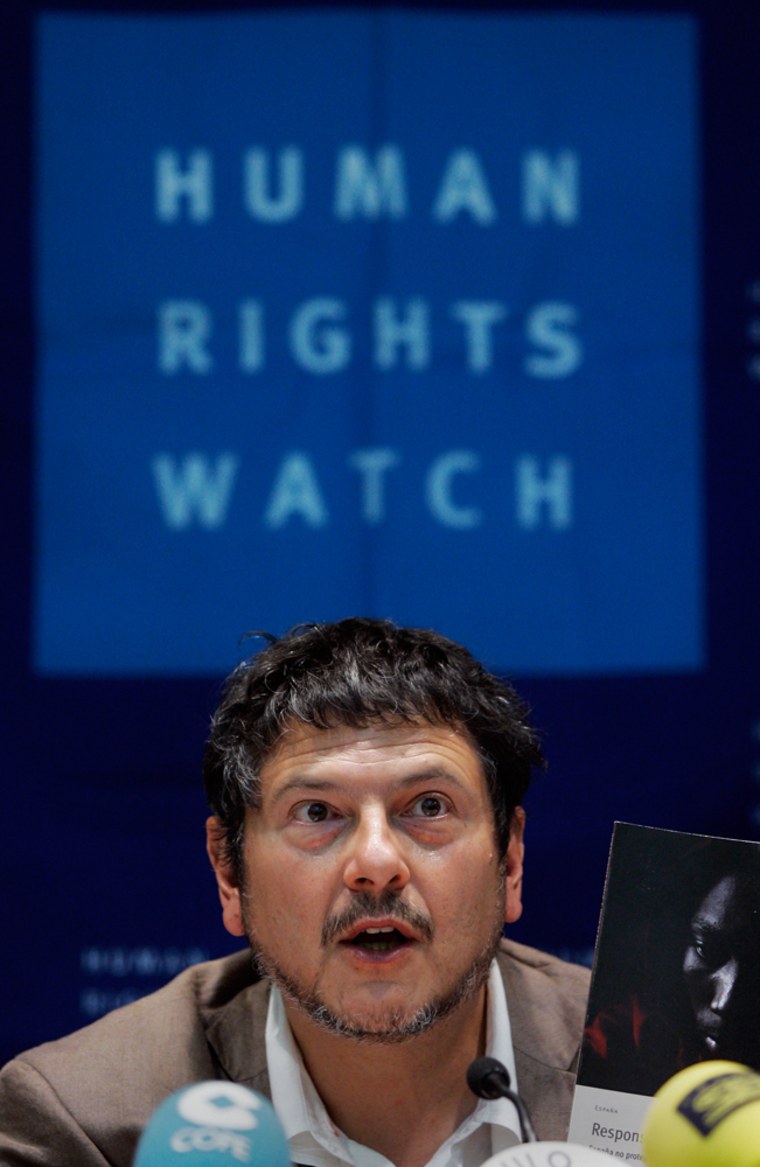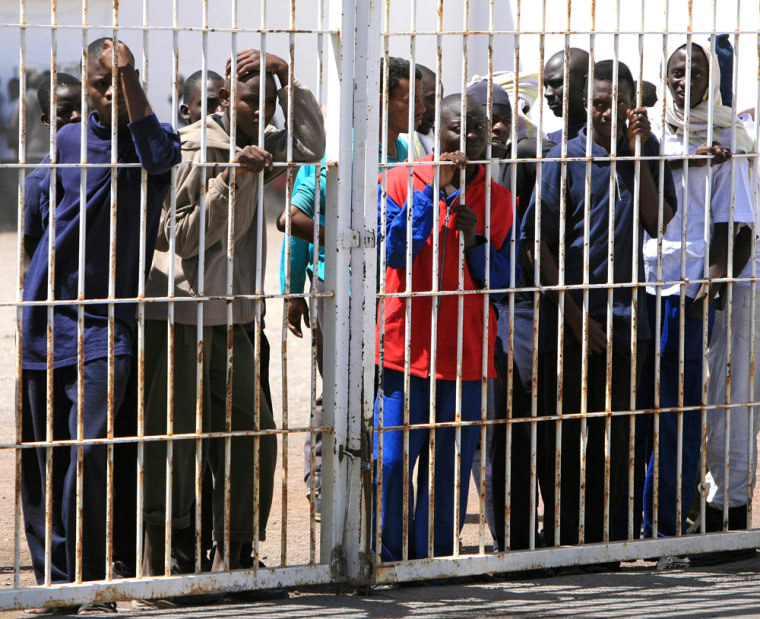A human rights group accused Spain on Thursday of keeping migrant African children in appalling conditions, including windowless “punishment” cells where they are beaten and denied access to toilets.
The report by New York-based Human Rights Watch said the abuses took place in holding facilities on the Canary Islands, which lie off Africa’s northwest coast of Africa have been swamped by a surge in African migration in recent years.
More than 900 children — mostly boys from Senegal and Morocco — are crowded into four “prison-like” detention centers on Spain’s Canary Islands.
Immigrants who are caught are returned to their home countries, but the process can take months.
Simone Troller, European children’s rights researcher for Human Rights Watch and the report’s author, told The Associated Press that under Spanish law, migrant children are not technically allowed to be detained.
In practice, she said, they are “kept in almost prison-like conditions.”
“They are not allowed to leave the centers on their own. They have to stay in the compounds, and sometimes you have young children mixed with old children,” Troller told the AP.
The Canary Islands’ regional government denounced the report as sloppy, saying its own investigation had uncovered no evidence of such abuses. It said the conclusions were “based on uncorroborated testimony from the children, and without, at any moment, identifying those allegedly responsible.”
No immediate comment came from the national government in Madrid. Although the national government established the detention centers, the regional government manages them.
The children detailed in the report — between 10 and 17 years of age — were among some 30,000 immigrants who arrived illegally on the Canary Islands last year aboard packed fishing boats from north and west Africa.
'A punishment cell'
The report describes what the children called “a punishment cell” — a filthy, windowless and airless room where some were beaten and locked up for several days.

Children had to urinate and defecate on the floor because they were not allowed to go to the toilet, the report said. In another center, children reported that one staff member had sexually abused them.
“We’re not suggesting widespread sexual abuse, but there are allegations that should be investigated,” Troller said.
She also said that many children who had languished in the holding centers while their cases were not reviewed by Spanish authorities.
“They have stayed there for six months, and they would say to me that I was the first person to talk to them for five minutes,” she said.
Human Rights Watch interviewed 75 of the children at the camps during a three-week period in January. Most of the children are from Senegal and Morocco. The report called on Spain to close the centers.
